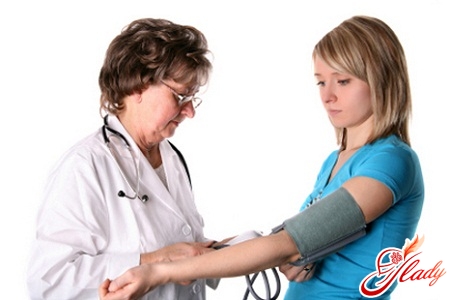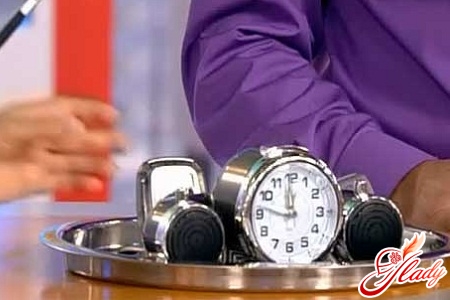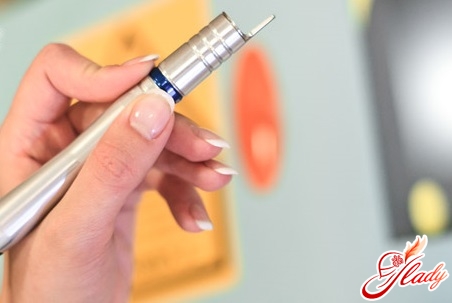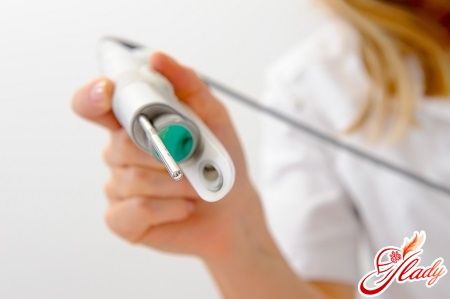 Low blood pressure, high pulse, highpressure, low pulse, - such complaints are very often heard by general practitioners and cardiologists. And in what - or emergency and life-threatening situations the first indicator that doctors take under strict and continuous control is the pulse. What is the pulse? Doctors characterize this concept as follows - cyclic changes in the volume of blood vessels that occur as a result of heart contractions. Doctors have long proven that for human health and life expectancy it is most optimal for metabolic processes to proceed economically, since in this case the human heart makes significantly fewer beats during life. Therefore, if you care about your health and are going to live a long life, be sure to keep your pulse under control. And the very first thing you need to do is learn how to count your pulse correctly. This skill can be useful to a person repeatedly throughout his life - you never know who might need your help?
Low blood pressure, high pulse, highpressure, low pulse, - such complaints are very often heard by general practitioners and cardiologists. And in what - or emergency and life-threatening situations the first indicator that doctors take under strict and continuous control is the pulse. What is the pulse? Doctors characterize this concept as follows - cyclic changes in the volume of blood vessels that occur as a result of heart contractions. Doctors have long proven that for human health and life expectancy it is most optimal for metabolic processes to proceed economically, since in this case the human heart makes significantly fewer beats during life. Therefore, if you care about your health and are going to live a long life, be sure to keep your pulse under control. And the very first thing you need to do is learn how to count your pulse correctly. This skill can be useful to a person repeatedly throughout his life - you never know who might need your help?
Pulse Measurement Features
At first glance it may seem that inThere is absolutely nothing complicated about measuring your pulse. However, not everything is as simple as it seems – when measuring your pulse, you cannot help but take into account some features:
- Times of Day
Even in a healthy person, the heart ratecontractions can fluctuate significantly during the day. The lowest pulse in a person is at night and in the morning. But the highest pulse values are typical for the evening. Pulse fluctuations in both directions can be up to 10 beats - if nothing else bothers a person, doctors consider such fluctuations to be a natural physiological norm.
- Position of the human body
Of no less importance is the positionbody in which the pulse is measured. If a person is lying down, then his heart rate will be much lower than in a sitting position, and even more so in a standing position. This means that when monitoring the work of the cardiovascular system, the pulse must be measured at the same time, in the same position - only in this case will the results of the pulse counting be objective. Doctors recommend measuring the pulse as follows: in the morning, immediately after waking up, without getting out of bed. Moreover, very often people count the pulse using a simplified scheme - they count the number of beats in 30 seconds and multiply by two. However, this approach is not entirely correct, since the heartbeat does not always occur with the same frequency. Therefore, it is much wiser not to save time, but to count the number of heartbeats in a full minute. Of course, sometimes you have to measure your pulse not only in the morning, but also throughout the day. And therefore you need to know some of the features of measuring the pulse. For example, the pulse cannot be measured in the following situations:
- In the first hour after taking medicines, alcoholic beverages, foods.
- In the event that a sick person experiences an acute sense of hunger or thirst.
- In the first hour after heavy physical exertion - training or work.
- After a massage, sex or exposure to high temperatures - a sauna or a beach.
- For diagnostic purposes, it is impractical to measure the pulse during menstruation.
Where is the best place to measure your pulse?Doctors recommend measuring the pulse on the radial artery. To find this artery, place your thumb slightly below the first crease on your wrist. To measure the pulse, use three fingers: place the pad of your thumb on the artery itself, and use your middle and index fingers to hold your hand still.
High heart rate
Most often people complain of increased heart rate.In official medicine, such a disorder is called tachycardia. Moreover, with this disease, a high pulse with normal pressure is quite common. But, despite the fact that the pressure is absolutely normal, the heart rate can be over 90 times per minute. Doctors distinguish two types of such a phenomenon as tachycardia:
Of course, no disease occurs just like that. This is also true for tachycardia - there are a number of factors that provoke the development of tachycardia:
- Disorders of the central vegetative nervous system.
- Intoxication of the body: alcoholic beverages, medicinal and narcotic drugs.
- All kinds of pathological changes in the cardiovascular system and the heart itself.
- Different types of anemia - both chronic and acute forms of the flow.
- Different types of respiratory failure - acute and chronic, especially in children.
Of course, an increased heart rate cannot butaffect the well-being of the sick person. First of all, certain changes in his condition appear. The person feels a strong and rapid heartbeat, pulsation in large arteries. Very soon after the heartbeat increases, the person begins to feel very weak, possibly even dizzy. Often, a person breaks out in a sticky cold sweat, darkens before the eyes and there is a ringing in the ears. However, poor health is far from the worst consequence that tachycardia can entail. Due to the increased number of heartbeats, the work of the heart muscle becomes less effective, and therefore wears out much faster. And you should not take this lightly - even if a person has an absolutely healthy heart, frequent attacks of tachycardia will sooner or later provoke the development of acute or chronic heart failure. Well, if tachycardia appears in a person who already has some heart problems, there is a very high risk of developing such life-threatening conditions as:
- Sudden arrhythmic shock.
- Cardiac asthma, caused by acute ventricular failure.
- Acute disruption of normal blood circulation of the brain, which is often accompanied by a sudden loss of consciousness during an attack of tachycardia.
Agree, these are not the most rosy prospects. Therefore, you should not ignore this condition - be sure to consult a doctor who will select the optimal treatment.
Treatment of tachycardia
The main treatment for tachycardia isnormalization of the patient's lifestyle. First, he must completely and entirely give up such bad habits as caffeine, alcohol, and smoking. And do not forget about caffeine-containing products - cola, chocolate, and others. As far as possible, it is also worth protecting the person from all sorts of stressful situations and excessive mental strain. In addition, close attention must be paid to ensuring that there is enough rest, and excessive physical activity should also be limited. A person with a rapid pulse should receive drug treatment only as prescribed by his doctor. Despite the fact that a large number of different drugs designed to stop an attack of tachycardia are sold in pharmacies, all of them, without exception, are emergency aid, but not treatment. And even they should be prescribed by the attending physician, who knows all the features of the patient's body. Basically, for the treatment of tachycardia, as well as many other heart diseases, doctors prefer to use pharmacological drugs that contain magnesium. The doctor will select the drug that suits you and prescribe a treatment regimen. As a rule, treatment is carried out on an outpatient basis, at home. However, in rare cases, the doctor may insist on hospitalization - if the patient's condition is critical.









